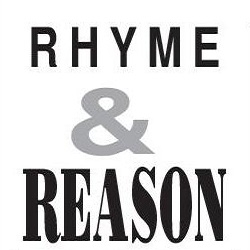CASE FOR INDIAN RATINGS
| Date :27-Sep-2024 |

By KARTIK
LOKHANDE :
The global elites have
not been challenged
seriously and
adequately in the area
of indices and ratings.
But, now India is in a
position to take lead in
this regard. It’s time
India had in place her
own global ratings
system through
think-tanks or
policy bodies. With it,
India must issue ratings
for various countries
including the USA and
China, and also for
various corporations
headquartered outside
India.
OFTEN, one comes
across various
indices and ratings
that project India
in poor light.
Suddenly, some indices change
the tone and place India among
the fastest growing economies.
Soon, such a good rating in the
sphere of economy is followed
by a poor rating of India in
terms of freedom, democracy,
social equality etc. The keen
readers of such ratings realise
that the countries placed above
India in some of the ratings
have failed miserably, but India
has been shining like a bright
star. But, new ratings based on
newer parameters spring up,
raising new concerns. The latest case in point is ratings structure that may be in place for
the Indian corporates in the
wake of the EnvironmentalSocial-Governance (ESG) goals.
The Freedom in the World
Index by Freedom House,
Democracy Index by
Economist Intelligence Unit,
V-DEM indices by the Varieties
of Democracy Institute, United
States Commission on
International Religious
Freedom report, International
Monetary Fund reports on
gross domestic product (GDP),
and ratings by some of the
international agencies, had
either projected India poorly
or placed her below some of its
neighbours. Not long ago,
India’s GDP was said to be lower than that of Bangladesh.
Some projections had placed
India below Sri Lanka. Some
reports a few years ago had
projected Afghanistan better
than India on some counts! As
the situation unfolded gradually, these indices and ratings
were proved nothing but a
sham. Instead of objective
truth, they proved to be subjective interpretation of data
analysed without considering
finer socio-economic and
socio-political aspects.
But, these indices and ratings were used, then, by the critics of India. These were used
to launch a tirade against India.
Those crying hoarse over
alleged democratic downslide
in India, based on such misleading indices and ratings,
suddenly went silent over sudden death of democracy and
human rights in Bangladesh
and Afghanistan. Some of the
countries these indices and ratings had placed above India
are facing socio-political, religious, economic, and genderbased turmoil. In sharp contrast, India has emerged as a
stronger economy, poised to
become the third largest economy of the world.
Some time ago, India’s
Economic Advisory Council to
the Prime Minister (EAC-PM)
had published a paper titled
‘Why India does poorly on global perception indices’. Mr.
Sanjeev Sanyal, Principal
Economic Adviser to the
Government of India, who had
authored the report with
Aakanksha Arora, had minced
no words when he said that the
opinion of some analysts could
not be taken as objective truth.
The report had rightly pointed out the lack of transparency about the process of choosing the experts/analysts who
created these questionable
indices and ratings. Besides,
the questionnaire used to create these indices and ratings
were subjective in nature.
The new ESG framework is
bound to stir the atmosphere
further as companies are
‘assessed’ based on how they
fare on ESG goals. Opinions
based on that are used to affect
market value of companies,
positively or negatively. But, it
is not clear if there are any sets
of norms for choosing experts,
framing questions, setting
goals, chalking out timelines for
achievement of goals.
There are some pertinent
questions too. Who sets the
goals, on what basis? Are the
regional socio-cultural history
and variations considered
while setting such goals? How
can things be assessed on the
basis of mere numbers? If time
proves the ratings wrong, is
there any mechanism to
penalise the agencies giving
such ratings? If there is no
mechanism to challenge the
subjectivity-based ratings, why
are such agencies allowed to
operate and dent the image of
governments and corporates?
These questions are indeed
uncomfortable for the global
elites who have been inventing frameworks for decades to
maintain their grip on the world
resources and economy.
Indian corporates must
understand these finer aspects
before blindly copying the
frameworks even for serving
the noble ESG goals. Apart from
the risk of politicisation of the
concept of ESG, the ratings area
needs to be treaded cautiously because answers to subjective questions run the inherent risk of inconsistencies, contrasts, and cultivation of biases.
Why should the ratings and
their frameworks invented in
Europe or the USA or the dominating global powers be adopted by one and all across the
globe? China never cared for
the ratings originating in
Western world. Besides, some
genuine civic leaders have
questioned as to why the corporate or country ratings leave
out entities involved in
weapons trade, cigarette, alcohol; or suspect corporations.
The global elites have not
been challenged seriously and
adequately in the area of
indices and ratings. But, now
India is in a position to take
lead in this regard. It’s time
India had in place her own global ratings system through thinktanks or policy bodies.
With it,
India must issue ratings for various countries of the world
including the USA and China,
and also for various corporations headquartered outside
India Unless this is done, various
indices and ratings shall continue to be utilised as tools of
furthering geo-economic and
geopolitical interests of the
global elites. India, a global
player now, must confidently
launch a serious multi-pronged
effort to devise ratings that offer
a worldview of developing
countries and particularly the
Global South. India will do well
in fostering economic co-operation based on the underlying
spirit of multilateralism in such
ratings. With Indian global ratings and indices, the world also
will witness a happy balance
of developmental, economic,
socio-political, socio-cultural
discourse between the developed and the developing world.
